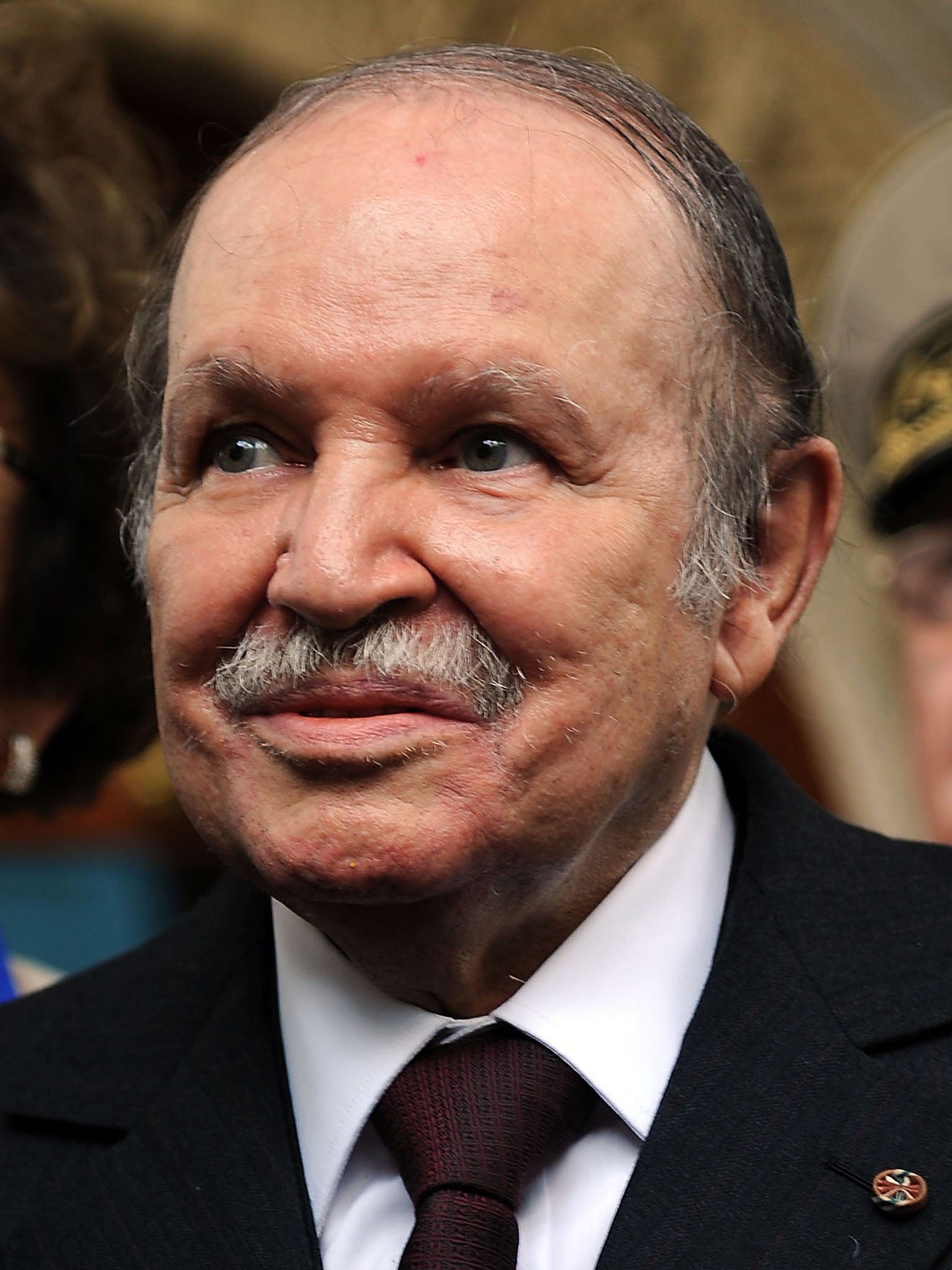Terror groups in Africa working with Al-Qaida, US General says

Your support helps us to tell the story
From reproductive rights to climate change to Big Tech, The Independent is on the ground when the story is developing. Whether it's investigating the financials of Elon Musk's pro-Trump PAC or producing our latest documentary, 'The A Word', which shines a light on the American women fighting for reproductive rights, we know how important it is to parse out the facts from the messaging.
At such a critical moment in US history, we need reporters on the ground. Your donation allows us to keep sending journalists to speak to both sides of the story.
The Independent is trusted by Americans across the entire political spectrum. And unlike many other quality news outlets, we choose not to lock Americans out of our reporting and analysis with paywalls. We believe quality journalism should be available to everyone, paid for by those who can afford it.
Your support makes all the difference.Terror groups operating in Mali, Nigeria and elsewhere in northern Africa are collaborating among themselves and receiving training from al-Qaida affiliates in the region, according to the head of the U.S. Africa Command.
"We are seeing clear indications of collaboration amongst the organizations," Army General Carter Ham said Monday in Washington. The United States has seen evidence that Boko Haram, an Islamic group in northern Nigeria, "is receiving financial support, some training, probably some explosives from al-Qaida in the Islamic Maghreb, in a relationship that goes both ways."
Al-Qaida in the Islamic Maghreb is among the best-financed affiliates of the terrorist group, drawing its money from kidnapping for ransom, drug-running and illicit trafficking in tobacco and fuel, Ham said at an event organized by the Homeland Security Policy Institute, a policy research group.
U.S. officials including Defense Secretary Leon Panetta have said that despite gains against so-called core al-Qaida in Afghanistan and border areas of Pakistan, the group and its surrogates have spread in a wide swath of North Africa.
"Violent extremists and affiliates of al-Qaida" were involved in the Sept. 11 attacks on a U.S. diplomatic compound in Benghazi, Libya, that led to the deaths of Ambassador Chris Stevens and three other Americans, Panetta said in a Nov. 20 speech.
Countering terror groups in north Africa must be more than a military effort, Ham said. "The military is an essential but non-decisive component in countering" ideology that drives people in the region to support al-Qaida affiliates, he said.
The absence of government and a lack of medical care and economic opportunity are driving people toward extremist ideology, Ham said.
"Northern Mali is a particular challenge at the moment" with no government control in two-thirds of the country, which has turned the area into a "safe haven for al-Qaida in the Islamic Maghreb," he said.
Any military effort against rebels in northern Mali must be led by the African Union or by the Economic Community of West African States, also known as Ecowas, Ham said.
The African Union on Nov. 13 approved a plan to send more than 3,000 troops to northern Mali to oust the rebels. The U.S. is in discussions with the African Union and the United Nations about the timing of the military action, which isn't likely before March, Ham said. A poorly planned mission earlier than that would unsuccessful, he said.
The U.S. military is hampered in not being able to have a military-to-military relationship with Mali's armed forces because the country's interim government gained power through a coup, Ham said. "That's a pretty significant impediment."
Africa Command, established in October 2007, is the newest of the military's six regional commands. Because of the relatively recent focus on Africa, U.S. military officials don't have the same depth of understanding about Africa that they have concerning other parts of the world, Ham said.
"That causes us to be very reliant upon the U.S. intelligence community broadly, including the civilian components" such as experts from the State Department and Department of Agriculture, Ham said. Special operations forces also play a significant role because "they bring a higher degree of cultural understanding" including language skills that regular military troops may not have, he said.
"The area we are the weakest in Africa is probably human intelligence," Ham said. Geographic, linguistic and cultural challenges make the gathering of human intelligence difficult, he said. The Pentagon is looking at ways to broadly increase its human intelligence collection capability, he said.
Panetta announced in October that President Obama will nominate Army General David Rodriguez to succeed Ham as commander of the Africa Command.
Join our commenting forum
Join thought-provoking conversations, follow other Independent readers and see their replies
Comments